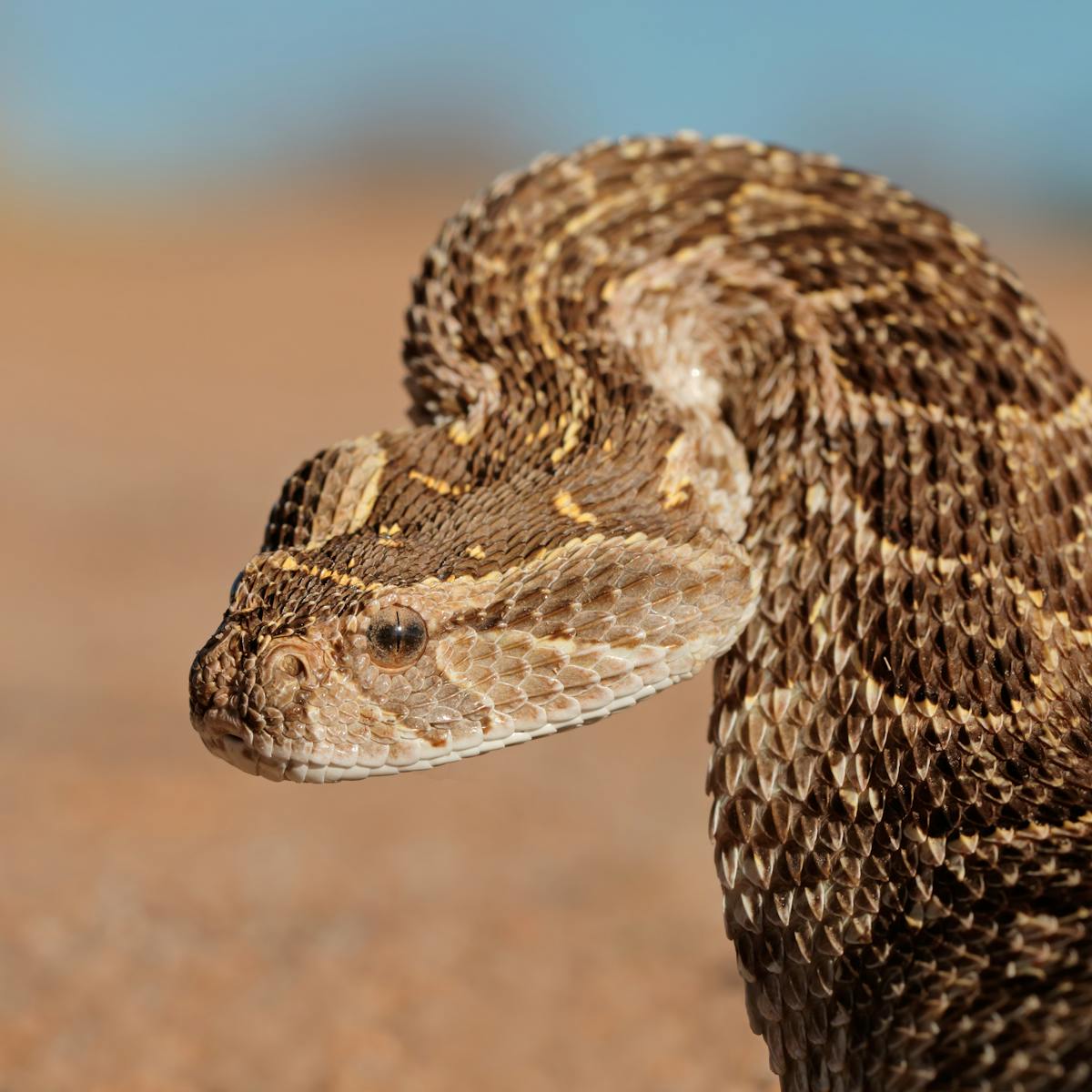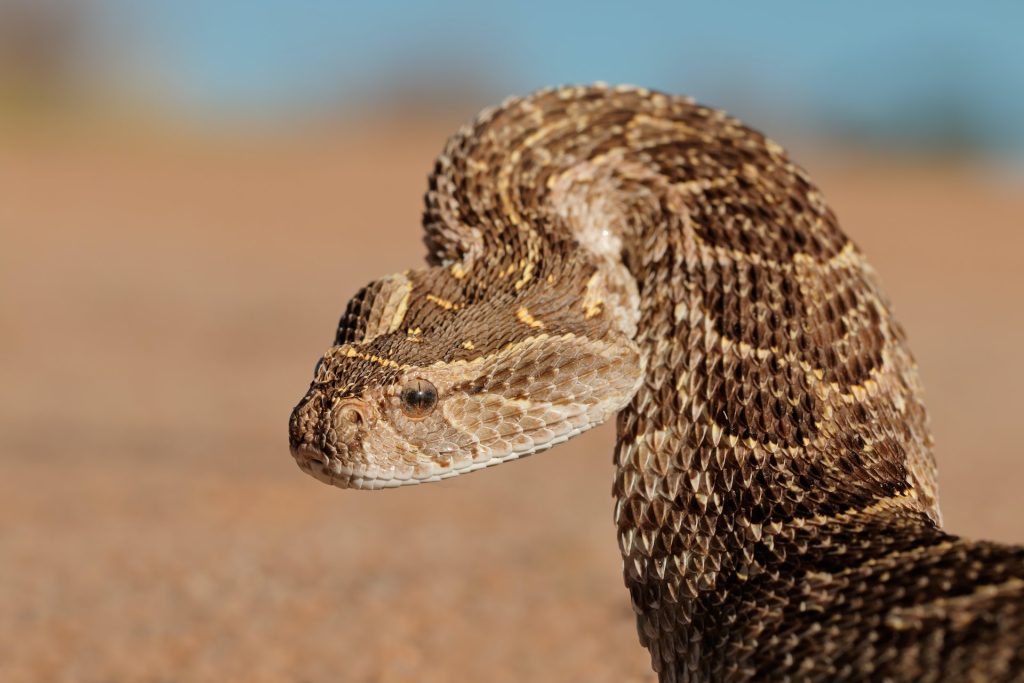Vipers are some of the most fascinating creatures on the planet. These venomous snakes are known for their deadly bites, which they use to hunt and defend themselves. But did you know that vipers have a variety of ways they use their venom to survive?
In this article, we’ll explore five ways vipers use their venom to hunt and defend themselves. From immobilizing prey to deterring predators, vipers have developed a range of tactics that allow them to thrive in their environments. So, buckle up and get ready to discover the amazing world of vipers and their venomous ways.
Vipers use their venom for both hunting and defending themselves. Five ways they use their venom are: injecting it into prey to immobilize or kill it, using it as a defense mechanism by injecting it into predators, using it as a warning signal by striking without injecting venom, using it to regulate body temperature, and using it to aid in digestion. Vipers are highly skilled in the use of their venom and have evolved to be able to control the amount they inject depending on the situation.

5 Ways Vipers Use Their Venom to Hunt and Defend Themselves
Vipers are one of the most fascinating species of snakes that have been around for millions of years. They have venomous fangs that they use for hunting their prey and defending themselves against predators. In this article, we will discuss the five ways vipers use their venom to hunt and defend themselves.
1. Paralyzing Prey
Vipers use their venom to paralyze their prey so that they can easily catch it. They inject venom into their prey’s body, which causes paralysis, making it easier for the viper to catch it. The venom contains neurotoxins that attack the nervous system, causing paralysis and ultimately death.
When a viper bites its prey, the venom rapidly spreads through the bloodstream, causing paralysis. The prey becomes immobile and is unable to escape, making it easier for the viper to catch and eat.
Benefits of Paralyzing Prey
– Makes it easier for vipers to catch their prey
– Reduces the chance of prey escaping
– Saves energy for vipers
Vs. Non-Venomous Snakes
– Non-venomous snakes have to rely on constriction to catch their prey
– Vipers can catch and eat prey much faster than non-venomous snakes
2. Digestion
Vipers also use their venom to aid in digestion. The venom contains enzymes that break down the prey’s tissues, making it easier for the viper to digest. The enzymes in the venom help to liquefy the prey’s insides, allowing the viper to suck it up easily.
Benefits of Venom for Digestion
– Speeds up the digestion process for vipers
– Makes it easier for vipers to digest their prey
– Helps vipers get the maximum nutritional value from their prey
Vs. Non-Venomous Snakes
– Non-venomous snakes have to rely on their digestive system alone to break down their prey
– Vipers can digest their prey much faster than non-venomous snakes
3. Self-Defense
Vipers use their venom for self-defense when they feel threatened. They inject venom into their attacker, causing pain and discomfort. The venom also contains toxins that can cause serious harm to the attacker, such as tissue damage and even death.
Benefits of Venom for Self-Defense
– Protects vipers from predators
– Deters predators from attacking vipers in the future
– Can help vipers escape from danger
Vs. Non-Venomous Snakes
– Non-venomous snakes have to rely on their size and strength to defend themselves
– Vipers can defend themselves much more effectively than non-venomous snakes
4. Locating Prey
Vipers also use their venom to locate prey. They have special heat-sensing pits on their faces that can detect the body heat of their prey. When they strike, they inject venom into their prey that contains chemicals that help them track it down.
Benefits of Venom for Locating Prey
– Helps vipers locate their prey more easily
– Increases the chances of catching prey
– Saves energy for vipers
Vs. Non-Venomous Snakes
– Non-venomous snakes have to rely on their sense of smell and sight to locate prey
– Vipers can locate prey much more effectively than non-venomous snakes
5. Killing Competitors
Vipers use their venom to kill competitors, such as other snakes or animals that are competing for the same resources. The venom contains toxins that can cause serious harm to their competitors, making it easier for the viper to claim its resources.
Benefits of Venom for Killing Competitors
– Ensures that vipers have access to the resources they need to survive
– Reduces competition for resources
– Increases the chances of survival for vipers
Vs. Non-Venomous Snakes
– Non-venomous snakes have to rely on their size and strength to compete with other animals
– Vipers can kill their competitors much more effectively than non-venomous snakes
In conclusion, vipers are fascinating creatures that rely heavily on their venom for hunting and defending themselves. Their venom has evolved over millions of years to become an incredibly effective tool for survival. By paralyzing prey, aiding in digestion, self-defense, locating prey, and killing competitors, vipers have become one of the most successful predators in the animal kingdom.
Frequently Asked Questions
What are the different ways vipers use their venom to hunt?
Vipers use their venom in various ways while hunting. Firstly, they use their venom to subdue their prey. The venom contains toxins that paralyze or kill the prey, making it easier for the viper to consume it. Secondly, vipers use their venom to track their prey. Some species of vipers inject venom into their prey and follow the trail of the venom to catch it. Lastly, vipers also use their venom to defend their territory. They can inject venom into predators or humans who threaten them.
Can vipers control how much venom they release?
Yes, vipers have control over how much venom they release. They can adjust the amount of venom depending on the size of their prey or the threat level of the predator they are defending themselves against. Vipers have a series of muscles around their venom glands that allow them to regulate the amount of venom released. They can release a small amount of venom to deter a predator or release a larger amount to subdue their prey.
What happens when a human is bitten by a venomous viper?
When a human is bitten by a venomous viper, the venom enters the bloodstream and can cause a range of symptoms. The symptoms vary depending on the type of viper and the amount of venom injected. Common symptoms include pain and swelling at the bite site, nausea, vomiting, and dizziness. In severe cases, the venom can cause respiratory failure, bleeding, or paralysis. It is essential to seek medical attention immediately if bitten by a venomous viper.
Do all vipers have venomous bites?
No, not all vipers have venomous bites. Some species of vipers, such as the Gaboon viper, have extremely potent venom, while others, such as the horned viper, have weak venom. Additionally, some vipers, such as the African egg-eating snake, do not have venom at all. It is essential to know the type of viper you are dealing with to determine the severity of its bite.
How can vipers use their venom to defend themselves?
Vipers can use their venom to defend themselves in a few ways. Firstly, they can inject venom into predators who threaten them, such as birds or mammals. The venom can deter the predator or kill it if it is small enough. Secondly, vipers can use their venom defensively against humans who may pose a threat. Lastly, some species of vipers can release venom into the air, creating a cloud of venom that can deter predators or humans from approaching.
In conclusion, vipers are fascinating creatures that use their venom in a variety of ways to both hunt and defend themselves. By injecting venom into their prey, vipers can quickly immobilize and kill their target, making for an efficient hunting process. However, vipers also have the ability to control the amount of venom they inject, allowing them to conserve their venom when necessary.
Additionally, vipers use their venom as a defense mechanism, deterring potential predators with the threat of a painful or deadly bite. Some vipers even have specialized venom that can cause blindness or paralysis in their attackers. This adaptability and versatility make vipers a formidable force in the animal kingdom.
Overall, understanding how vipers use their venom can provide valuable insight into the complex interactions between predators and prey. By studying these fascinating creatures, we can better appreciate the intricacies of the natural world and the unique adaptations that allow different species to survive and thrive.


